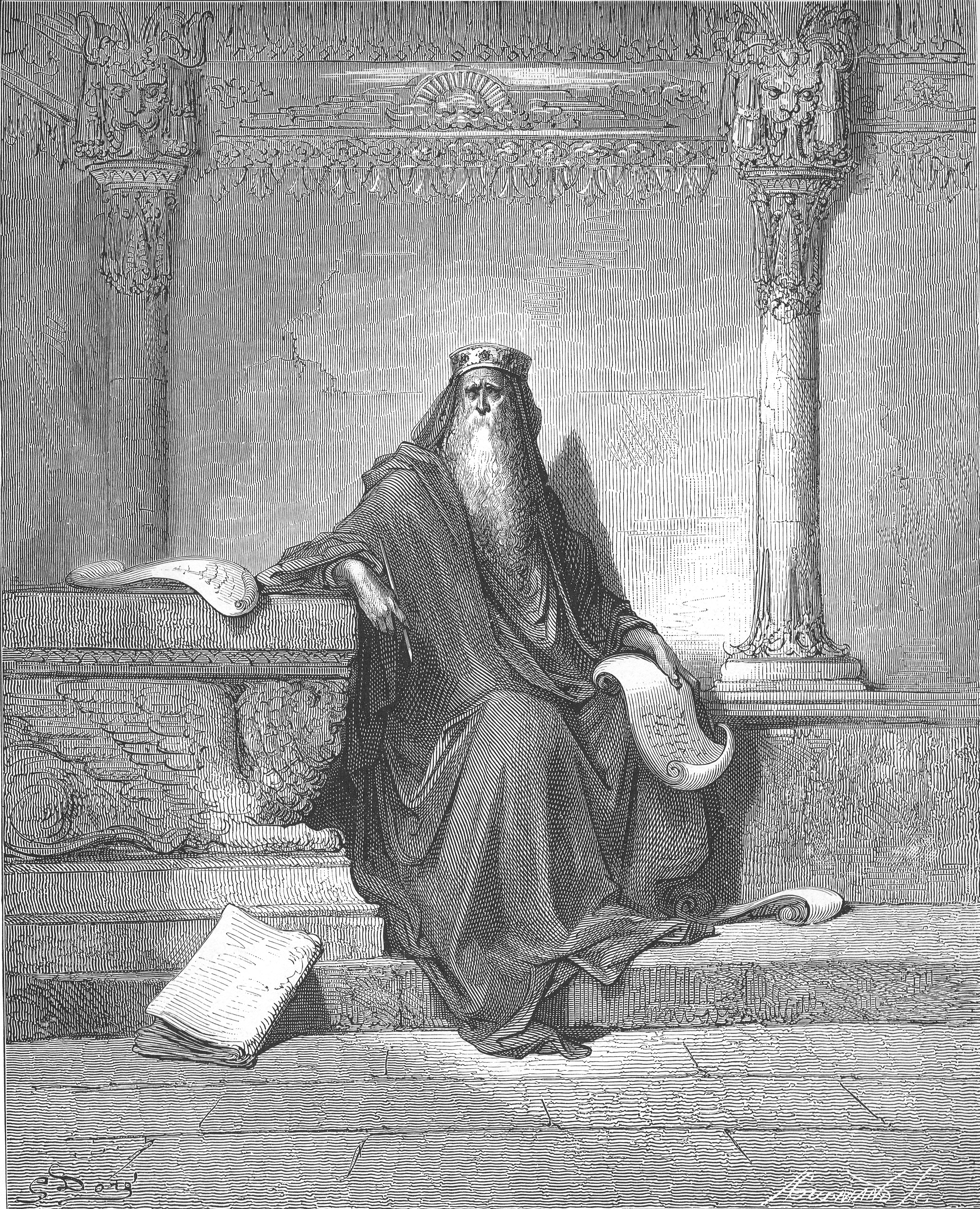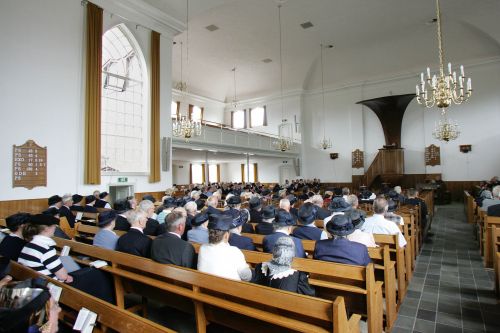|
Qahal
The ''qahal'' (), sometimes spelled ''kahal'', was a theocratic organizational structure in ancient Israelite society according to the Hebrew Bible, See column345-6 and an Ashkenazi Jewish system of a self-governing community or kehila from medieval Christian Europe (France, Germany, Italy). This was adopted in the Polish–Lithuanian Commonwealth (16th–18th centuries) and its successor states, with an elected council of laymen, the 'qahal', at the helm of each kehila. This institution was exported also further to the east as Jewish settlement advanced. In Poland it was abolished in 1822, and in most of the Russian Empire in 1844. Etymology and meaning The Hebrew word qahal, which is a close etymological relation of the name of ''Qoheleth'' (Ecclesiastes), comes from a root meaning "convoked roup; its Arabic cognate, ''qāla'', means ''to speak''. Where the Masoretic Text uses the term qahal, the Septuagint usually uses the Koine Greek term ''ekklesia'', , which means " ... [...More Info...] [...Related Items...] OR: [Wikipedia] [Google] [Baidu] |
Synagogue
A synagogue, also called a shul or a temple, is a place of worship for Jews and Samaritans. It is a place for prayer (the main sanctuary and sometimes smaller chapels) where Jews attend religious services or special ceremonies such as weddings, bar and bat mitzvahs, choir performances, and children's plays. They often also have rooms for study, social halls, administrative and charitable offices, classrooms for religious and Hebrew studies, and many places to sit and congregate. They often display commemorative, historic, or modern artwork alongside items of Jewish historical significance or history about the synagogue itself. Synagogues are buildings used for Jewish prayer, study, assembly, and reading of the Torah. The Torah (Pentateuch or Five Books of Moses) is traditionally read in its entirety over a period of a year in weekly portions during services, or in some synagogues on a triennial cycle. However, the edifice of a synagogue as such is not essential for hol ... [...More Info...] [...Related Items...] OR: [Wikipedia] [Google] [Baidu] |
Ecclesiastes
Ecclesiastes ( ) is one of the Ketuvim ('Writings') of the Hebrew Bible and part of the Wisdom literature of the Christian Old Testament. The title commonly used in English is a Latin transliteration of the Greek translation of the Hebrew word ( or ). An unnamed author introduces "The words of Kohelet, son of David, king in Jerusalem" (Ecclesiastes 1:1, 1:1) and does not use his own voice again until the final verses (12:9–14), where he gives his own thoughts and summarises the statements of Kohelet; the main body of the text is ascribed to Kohelet. Kohelet proclaims (1:2) "Vanity of vanities! All is futile!" The Hebrew word , 'vapor' or 'breath', can figuratively mean 'insubstantial', 'vain', 'futile', or 'meaningless'. In some versions, vanity is translated as 'meaningless' to avoid the confusion with the other definition of vanity. Given this, the next verse presents the basic existential question with which the rest of the book is concerned: "What profit can we show for a ... [...More Info...] [...Related Items...] OR: [Wikipedia] [Google] [Baidu] |
Church (congregation)
A church (or local church) is a religious organization or congregation that meets in a particular location, often for Christian worship, worship. Many are formally organized, with constitutions and by-laws, maintain offices, are served by clergy or lay leaders, and, in nations where this is permissible, often seek non-profit corporate status. Local churches often relate with, affiliate with, or consider themselves to be constitutive parts of Christian denomination, denominations, which are also called churches in many traditions. Depending on the tradition, these organizations may connect local churches to larger church traditions, ordination, ordain and defrock clergy, define terms of membership and exercise church discipline, and have organizations for cooperative ministry such as educational institutions and Christian mission, missionary societies. Non-denominational churches are not part of denominations, but may consider themselves part of larger church movements without i ... [...More Info...] [...Related Items...] OR: [Wikipedia] [Google] [Baidu] |
Theocracy
Theocracy is a form of autocracy or oligarchy in which one or more deity, deities are recognized as supreme ruling authorities, giving divine guidance to human intermediaries, with executive and legislative power, who manage the government's daily affairs. Etymology The word theocracy originates from the () meaning "the rule of God". This, in turn, derives from :wikt:θεός, θεός (theos), meaning "god", and :wikt:κρατέω, κρατέω (''krateo''), meaning "to rule". Thus the meaning of the word in Greek was "rule by god(s)" or human incarnation(s) of god(s). The term was initially coined by Flavius Josephus in the first century AD to describe the characteristic government of the Jews. Josephus argued that while mankind had developed many forms of rule, most could be subsumed under the following three types: monarchy, oligarchy, and democracy. However, according to Josephus, the government of the Jews was unique. Josephus offered the term ''theocracy'' to descri ... [...More Info...] [...Related Items...] OR: [Wikipedia] [Google] [Baidu] |
Septuagint
The Septuagint ( ), sometimes referred to as the Greek Old Testament or The Translation of the Seventy (), and abbreviated as LXX, is the earliest extant Greek translation of the Hebrew Bible from the original Biblical Hebrew. The full Greek title derives from the story recorded in the Letter of Aristeas to Philocrates that "the laws of the Jews" were translated into Koine Greek, the Greek language at the request of Ptolemy II Philadelphus (285–247 BC) by seventy-two Hebrew sofer, translators—six from each of the Twelve Tribes of Israel.Megillah (Talmud), Tractate Megillah 9](9a)/ref>Soferim (Talmud), Tractate Soferim 1](1:7-8)/ref> Textual criticism, Biblical scholars agree that the Torah, first five books of the Hebrew Bible were translated from Biblical Hebrew into Koine Greek by Jews living in the Ptolemaic Kingdom, centred on the History of the Jews in Alexandria, large community in Alexandria, probably in the early or middle part of the 3rd century BC. The remainin ... [...More Info...] [...Related Items...] OR: [Wikipedia] [Google] [Baidu] |
Cryptorchidism
Cryptorchidism, also known as undescended testis, is the failure of one or both testes to descend into the scrotum. The word is . It is the most common birth defect of the male genital tract. About 3% of full-term and 30% of premature infant boys are born with at least one undescended testis. However, about 80% of cryptorchid testes descend by the first year of life (the majority within three months), making the true incidence of cryptorchidism around 1% overall. Cryptorchidism may develop after infancy, sometimes as late as young adulthood, but that is exceptional. Cryptorchidism is distinct from monorchism, the condition of having only one testicle. Though the condition may occur on one or both sides, it more commonly affects the right testis. A testis absent from the normal scrotal position may be: # Anywhere along the "path of descent" from high in the posterior (retroperitoneal) abdomen, just below the kidney, to the inguinal ring # In the inguinal canal # Ectopic, havin ... [...More Info...] [...Related Items...] OR: [Wikipedia] [Google] [Baidu] |
Gender And Jewish Studies
Gender and Jewish Studies is an emerging subfield at the intersection of gender studies, queer studies, and Jewish studies. Gender studies centers on interdisciplinary research on the phenomenon of gender. It focuses on cultural representations of gender and people's lived experience. Similarly, queer studies focuses on the cultural representations and lived experiences of queer identities to critique hetero-normative values of sex and sexuality. Jewish studies is a field that looks at Jews and Judaism, through such disciplines as history, anthropology, literary studies, linguistics, and sociology. As such, scholars of gender and Jewish studies are considering gender as the basis for understanding historical and contemporary Jewish societies. This field recognizes that much of recorded Jewish history and academic writing is told from the perspective of “the male Jew” and fails to accurately represent the diverse experiences of Jews with non-dominant gender identities. History Je ... [...More Info...] [...Related Items...] OR: [Wikipedia] [Google] [Baidu] |
Emasculation
Emasculation is the removal of the external male sex organs, which includes both the penis and the scrotum, the latter of which contains the testicles. It is distinct from castration, where only the testicles are removed. Although the terms are sometimes used interchangeably, the potential medical consequences of emasculation are more extensive due to the complications arising from the removal of the penis. There are a range of religious, cultural, punitive, and personal reasons why someone may choose to emasculate themselves or another person. The term ''emasculation'' may be used in a metaphorical sense, referring to the perceived loss of attributes traditionally associated with masculinity, such as strength, power, or autonomy. Method There are several different methods of emasculation. Both the penis and testicles may be removed simultaneously using a sharp instrument, such as a knife or razor or swords. Non-crushing vascular clamps may also be used in medical surgery to ... [...More Info...] [...Related Items...] OR: [Wikipedia] [Google] [Baidu] |
Mamzer
In the Hebrew Bible and Jewish religious law, a ''mamzer'' (, , "estranged person"; plural ''mamzerim'') is a person who is born as the result of certain forbidden relationships or incest (as it is defined by the Bible), or the descendant of such a person. Mamzer status () is not synonymous with the traditional Western definition of illegitimacy, since it does not include children born to unmarried mothers. Definition Etymology Some have explained the word ''mamzer'' as the masculine noun form derived from the root ''m-z-r'', having a meaning of spoilt/corrupt. According to ''Strong's Concordance'': "from an unused root meaning 'to alienate'; a mongrel, i. e., born of a Jewish father and a heathen mother". The Talmud explains the term homiletically as consisting of the words ''mum'' (defect) and ''zar'' (strange/alien), a euphemism for an illicit union in the person's lineage. Hebrew Bible usage The term occurs twice in the Hebrew Bible. The first time is (23:2 ... [...More Info...] [...Related Items...] OR: [Wikipedia] [Google] [Baidu] |
Yahweh
Yahweh was an Ancient Semitic religion, ancient Semitic deity of Weather god, weather and List of war deities, war in the History of the ancient Levant, ancient Levant, the national god of the kingdoms of Kingdom of Judah, Judah and Kingdom of Israel (Samaria), Israel, and the king of the gods, head of the Pantheon (religion), pantheon of the Polytheism, polytheistic Yahwism, Israelite religion. Although there is no clear consensus regarding the geographical origins of the deity, scholars generally hold that Yahweh was associated with Mount Seir, Seir, Edom, Desert of Paran, Paran, and Teman (Edom), Teman, and later with Canaan. The worship of the deity reaches back to at least the early Iron Age, and likely to the late Bronze Age, if not somewhat earlier. In the oldest Bible, biblical texts, Yahweh possesses attributes that were typically ascribed to deities of weather and war, fructifying the Land of Israel and leading a Heavenly host#Hebrew Bible, heavenly army against the ... [...More Info...] [...Related Items...] OR: [Wikipedia] [Google] [Baidu] |
Book Of Deuteronomy
Deuteronomy (; ) is the fifth book of the Torah (in Judaism), where it is called () which makes it the fifth book of the Hebrew Bible and Christian Old Testament. Chapters 1–30 of the book consist of three sermons or speeches delivered to the Israelites by Moses on the Plains of Moab, shortly before they enter the Promised Land. The first sermon recounts the Moses#The years in the wilderness, forty years of wilderness wanderings which had led to that moment and ends with an exhortation to observe the law. The second sermon reminds the Israelites of the need to follow Yahweh and the laws (or teachings) he has given them, on which their possession of the land depends. The third sermon offers the comfort that, even should the nation of Israel prove unfaithful and so lose the land, with repentance all can be restored. The final four chapters (31–34) contain the Song of Moses, the Blessing of Moses, and the narratives recounting the passing of the mantle of leadership from Mose ... [...More Info...] [...Related Items...] OR: [Wikipedia] [Google] [Baidu] |








